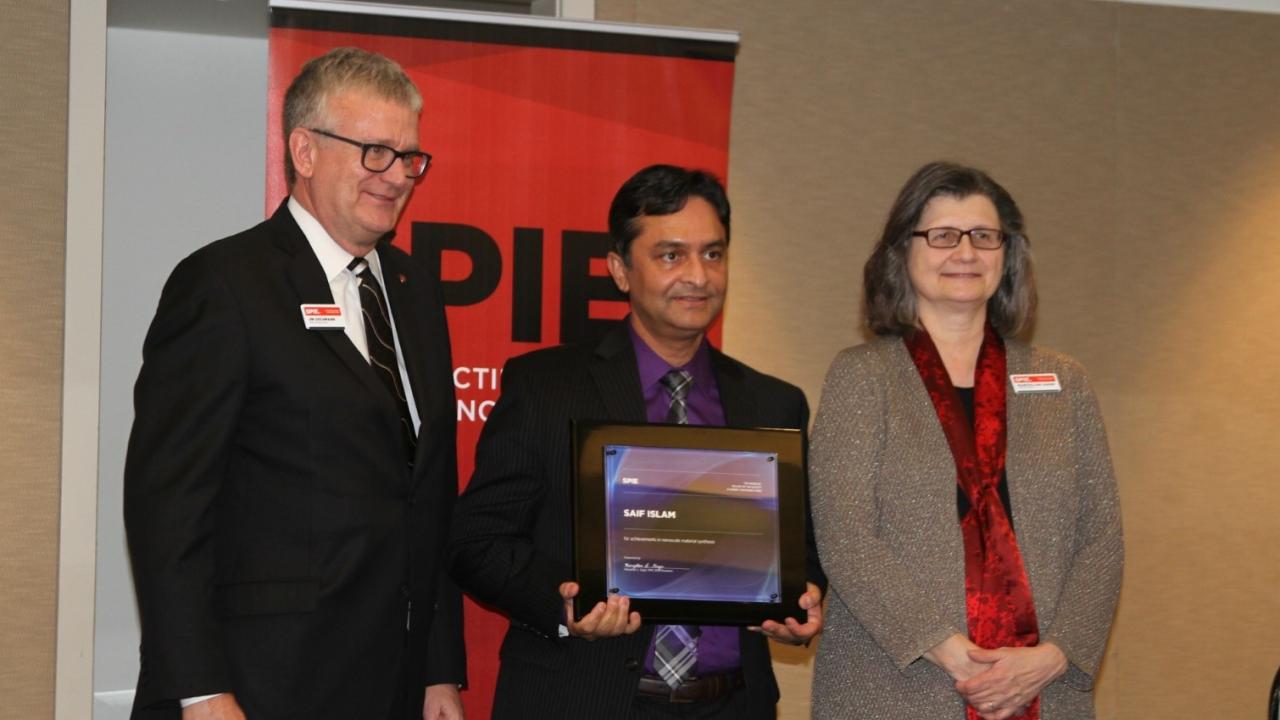
Saif Islam Named International Society for Optics and Photonics Fellow
By Hannah Fong and Bonnie Dickson
Electrical and Computer Engineering Department Chair and Professor Saif Islam has been named a Fellow of the International Society for Optics and Photonics, formerly known as Society of Photo-Optical Instrumentation Engineers (SPIE).
Islam was one of 73 SPIE members from around the globe who were named 2017 Fellows during the SPIE Photonics West Fellows Luncheon held on Jan. 29 in San Francisco. To be elected Fellow, SPIE members must have contributed significantly to the fields of optics, photonics and imaging through both research and volunteerism.
“It’s a great honor to be elevated to Fellow and to be recognized by my peers,” says Professor Islam. “I am very fortunate to be at UC Davis where incredibly talented graduate students and researchers come from all over the world to work on exciting research problems. My outstanding colleagues are the source of endless positive energy and enthusiasm for me."
During his induction as Fellow, Islam was specifically honored for achievements in nanoscale material synthesis. He is also recognized for his work on high-performance photonic devices including ultra-fast and high-power photodetectors. These technologies help big data centers effectively process high volumes of data traffic and handle higher bandwidths.
Islam is actively involved with SPIE as a conference program committee member, conference chair and as an editor and author of conference SPIE conference proceedings and related papers. To date, Islam has authored or co-authored more than 200 scientific papers and organized 28 conferences and symposiums as a chair and co-chair. He also holds 40 patents as an inventor and co-inventor and is an elected fellow of the National Academy of Inventors.
Islam joined the UC Davis Department of Electrical and Computer Engineering in 2004 and was appointed chair of the department in July 2017.
In addition to his duties as chair, Islam also oversees a nanotechnology research group, Inano. The group is currently exploring the development of massively parallel synthesis and integration processes for zero and one-dimension nano-structures for a wide range of potential applications. These applications include nanoscale electronics, photonics, energy conversion, high-density energy storage, biochemical sensors, memory, logic, microelectromechanical system and nanoelectromechanical system devices, 3D device/chip integration, substrate-less devices and circuit fabrication.
Founded in 1955, SPIE serves to advance light-based technologies through interdisciplinary information exchange, continuing education, publications, patent precedent and career and professional growth. The full list of the 2017 New SPIE Fellows is available online.

